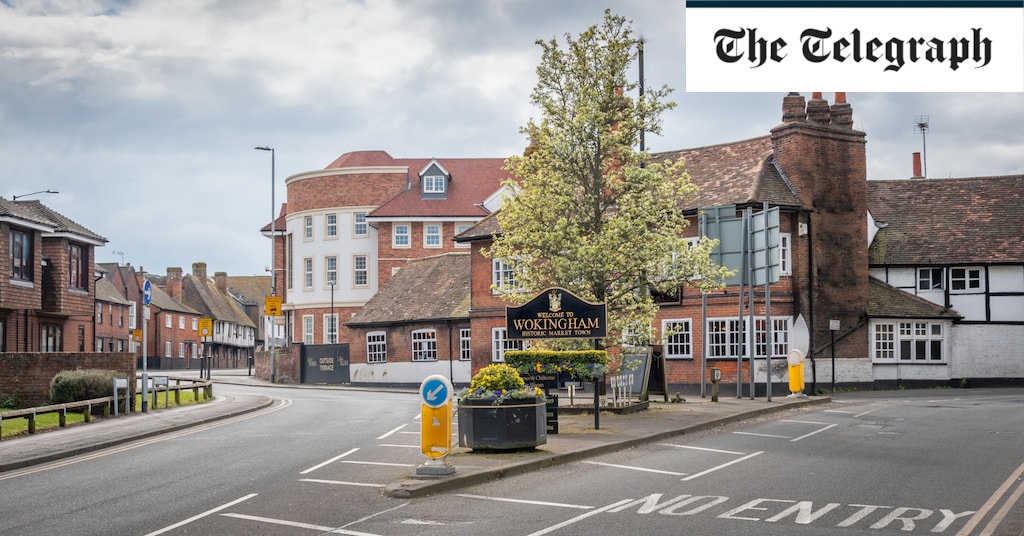Hawaiian shirts and suitcases stuffed with cash are a rare sight on the sleepy streets of Wokingham. But this leafy Berkshire town has been revealed as an unlikely hotspot for suspicious money channelled into the UK from global tax havens.
Nearly £6bn of untracked funds have been funnelled through companies registered in British Overseas Territories to purchase British properties since 2016, according to analysis by campaign group Transparency International UK. Over 90pc of this money originated from the British Virgin Islands, favoured by the ultra-wealthy looking to avoid tax. The funds have been used to purchase 494 UK properties since 2018, mostly in London.
The figures are broken down by Parliamentary constituency, and based on a combination of court documents, corporate and land registry data, and leaks. Cities of London and Westminster topped the list of constituencies that had attracted the most investment, with £3.6bn spent on 224 properties.
However, the research also revealed that five properties worth a combined total of £146m were bought in Wokingham, for an average value of almost £30m, despite domestic properties in the town selling for an average of £615,044. The purchase of “one large estate of multiple properties owned by one person” boosted the average figure, Transparency International UK said.
Four of the top 10 constituencies were outside the capital. Wokingham ranked fifth overall, ahead of Windsor – also in Berkshire – where £50m of property was sold, Runnymede & Weybridge in Surrey with £48.2m, and Bristol Central, where a single office building was bought for £34.7m. From 1997 to 2019, Runnymede & Weybridge was the constituency of Philip Hammond, who launched a crackdown on offshore tax cheats while chancellor.
‘Dirty money exacerbates housing crisis’
It is believed that around a third of all world tax avoidance is funnelled through British Overseas Territories. The Panama Papers leak in 2016 revealed how wealthy individuals used offshore companies to hide assets, evade tax, and conceal financial activities. More than half of the companies cited in the release were registered in the British Virgin Islands.
Campaigners have long lobbied for the British Virgin Islands to publish a list of the ultimate owners of companies registered there, which are often hidden in a complex network of trusts.
Joe Powell, MP for Kensington and Bayswater, where 83 properties worth a total of £1.1bn were purchased through British Overseas Territories over the eight-year period, led a cross-party group of MPs in writing to David Lammy, the Foreign Secretary, this month urging him to crack down on tax evasion in the territories. Mr Powell said that “dirty money in London property exacerbates the housing crisis, hollows out communities and is bad for democracy”.
Some overseas territories, such as Monserrat, have brought in registers. Others including the British Virgin Islands and the Cayman Islands are yet to do so.
Separate research by Transparency International UK suggested that £6.7bn of UK property had been bought with “suspect wealth”, including £1.5bn by Russians accused of corruption or links to the Kremlin. These figures show that Britain had become a “laundromat” for suspicious Russian wealth, likely underestimating the true scale of the issue, it said.
Estimates released by HM Revenue and Customs suggest that the tax gap – the difference between tax owed and tax collected – relating to offshore income and assets amounted to £300m. The figure is almost certainly far lower than the true value. Sir Jim Harra, chief executive of HM Revenue and Customs, told the Public Accounts Committee on Thursday that the estimate was “only one aspect” of the offshore tax gap and “incomplete”.
Margot Mollat, of Transparency International UK urged the Government to enforce more stringent rules to stamp down on corruption. She added: “Corporate secrecy in the UK’s Overseas Territories plays a central role in enabling corruption, money laundering, and the evasion of tax and sanctions on a global scale. Our new research highlights the Overseas Territories’ role as global hubs for suspicious and illicit wealth.
“The secrecy provided by these jurisdictions have made them destinations of choice for corrupt individuals seeking to conceal criminal acts and enjoy the proceeds of their crimes with impunity.
“Greater transparency is essential to trace these financial flows, not only within the property sector but in the broader fight against corruption and money laundering. But as inaction from these jurisdictions continues, the Government should establish clear transparency standards for British Overseas Territories.
“At the very least, these should be in line with EU practice, granting journalists, researchers, and academics who can demonstrate a ‘legitimate interest’ full access to registers.”
HMRC was approached for comment. A British Virgin Islands spokesman said: “The British Virgin Islands is unwavering in its commitment to combating money laundering, tax evasion, and all forms of illicit financial activity. In partnership with the United Kingdom Government, the British Virgin Islands has established a dedicated Sanctions Unit to ensure compliance with international financial sanctions, acting promptly on Financial Sanctions Notices issued by HM Treasury.
“Additionally, we are advancing efforts to enhance transparency by preparing to provide access to beneficial ownership information in cases where a legitimate interest is demonstrated.”

